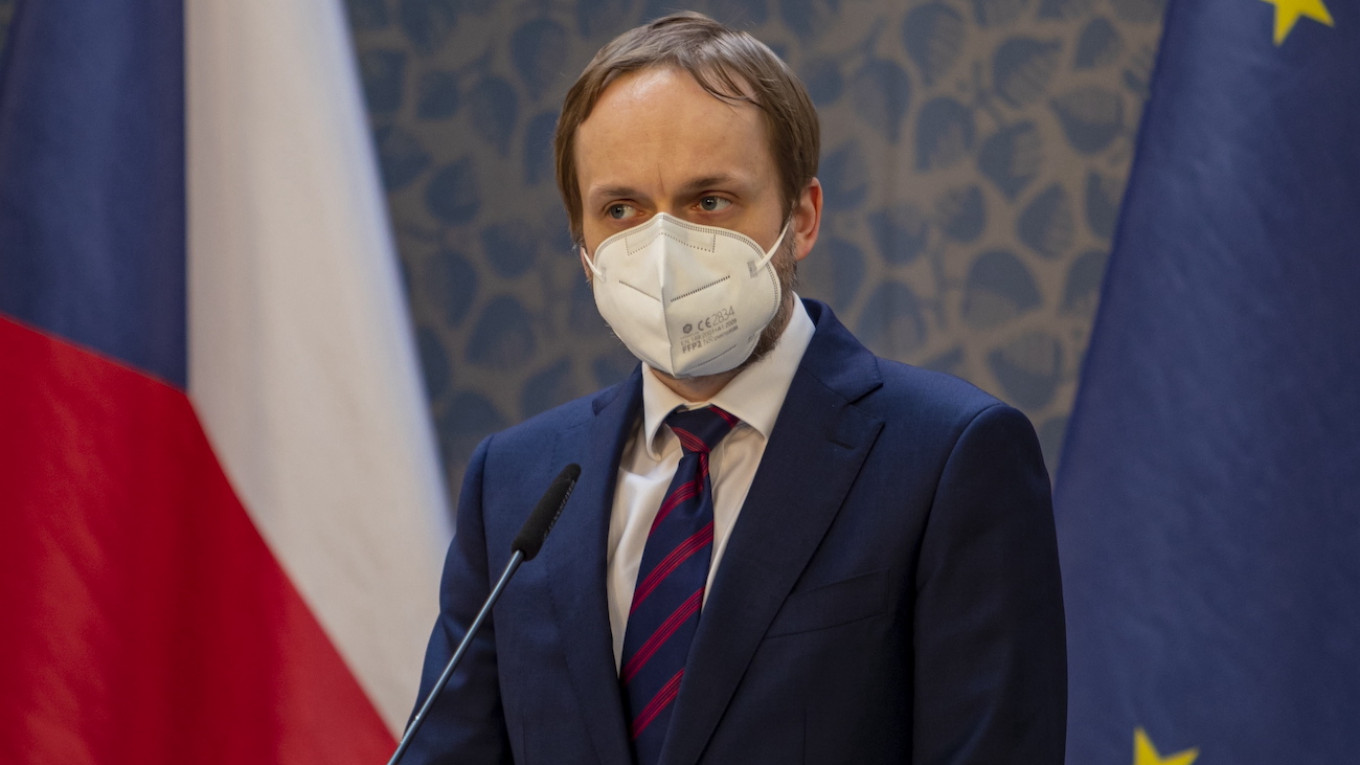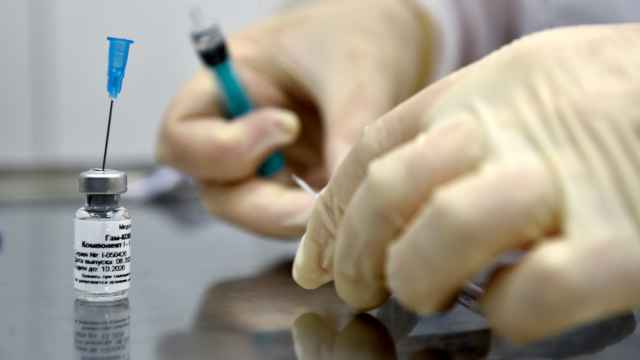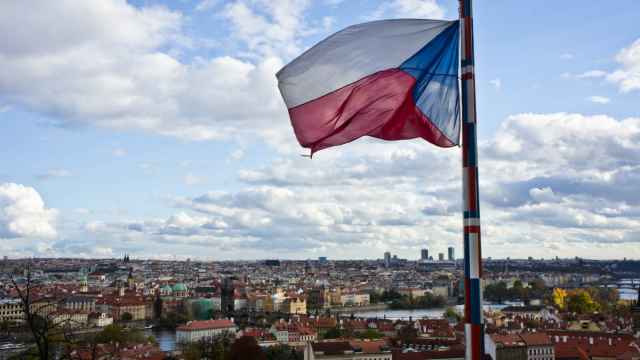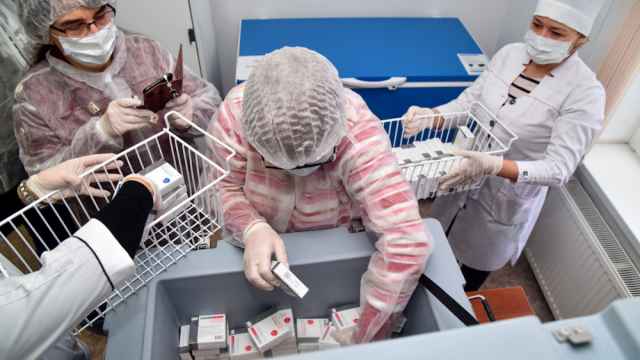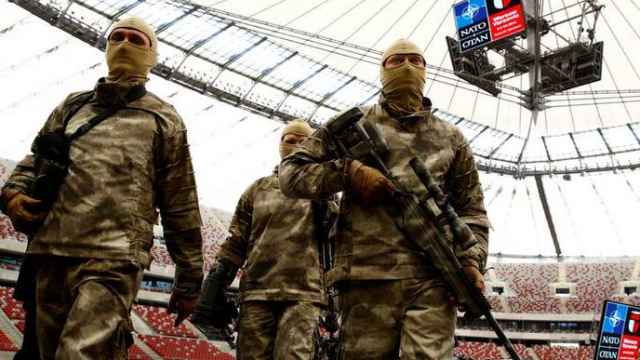The Czech government said Thursday it would slap a ceiling on the Russian embassy workforce as part of a spiraling diplomatic row, which means dozens of staff will have to leave by next month.
Foreign Minister Jakub Kulhanek said Russia will have until the end of May to withdraw its embassy's employees to reduce their numbers to the same level as those of the Czech embassy in Moscow.
The Russian foreign ministry threatened retaliation.
Prague currently has a total of 24 embassy staff in Russia, which in turn has 94 staff in Prague.
Dozens of diplomats were expelled earlier this week on both sides over allegations from the Czech government that Russian spies orchestrated a fatal explosion on Czech soil in 2014.
"In line with article 11 of the Vienna Convention [on Diplomatic Relations], we will limit the number of Russian embassy staff in Prague to the actual number at our embassy in Moscow," Kulhanek told reporters.
Prague expelled 18 diplomats over the spying suspicions, while Moscow kicked out 20 in retaliation.
Kulhanek gave Moscow an ultimatum Wednesday to allow the 20 Czechs to return to work by Thursday noon, but Russia ignored the call.
"Russia's reaction was absolutely disproportionate, the diplomats didn't do anything wrong," Kulhanek said.
The 1961 Vienna Convention says that if there is no agreement on the size of embassies between two countries, the receiving state may keep the foreign mission "within limits considered by it to be reasonable and normal."
'Deep concern'
Kulhanek said Prague was willing to discuss the set-up with Russia in the future.
But the Russian foreign ministry, which summoned Czech ambassador to Moscow Vitezslav Pivonka for Thursday afternoon, reacted angrily.
"Prague decided to take the road to destroy the relation and won't have to wait long for our answer," Russian foreign ministry spokeswoman Maria Zakharova told reporters.
Ambassador Pivonka said after being summoned that he was staying in Moscow and that he expected further talks on bilateral relations in the future.
The European Union voiced support to Prague on Wednesday and NATO followed suit in a statement Thursday, expressing "deep concern over the destabilizing actions Russia continues to carry out across the Euro-Atlantic area."
Neighbouring Slovakia, which formed a single country with the Czech Republic until 1993, said it would expel three Russian diplomats in solidarity with Prague but also as a result of information received from their intelligence services.
'Beyond established rules'
"In the case of these three persons, their activities went beyond established rules in an international environment," Slovak Defence Minister Jaroslav Nad told reporters on Thursday.
Prague on Saturday accused the Russian foreign intelligence service of being behind an explosion at an ammunition depot near the eastern village of Vrbetice in 2014 that killed two Czech nationals.
Police are seeking two men in connection with that blast, as well as a second, non-fatal explosion nearby later that year.
Britain has identified the same men as suspects in the 2018 poisoning of former Russian double agent Sergei Skripal in Salisbury, England.
Some media reports have suggested the arms may have been destined for Ukraine.
The explosions occurred the same year that Russia annexed the Crimean peninsula from Ukraine and a conflict broke out between Ukrainian forces and Russia-backed rebels in the east of the country.
A Message from The Moscow Times:
Dear readers,
We are facing unprecedented challenges. Russia's Prosecutor General's Office has designated The Moscow Times as an "undesirable" organization, criminalizing our work and putting our staff at risk of prosecution. This follows our earlier unjust labeling as a "foreign agent."
These actions are direct attempts to silence independent journalism in Russia. The authorities claim our work "discredits the decisions of the Russian leadership." We see things differently: we strive to provide accurate, unbiased reporting on Russia.
We, the journalists of The Moscow Times, refuse to be silenced. But to continue our work, we need your help.
Your support, no matter how small, makes a world of difference. If you can, please support us monthly starting from just $2. It's quick to set up, and every contribution makes a significant impact.
By supporting The Moscow Times, you're defending open, independent journalism in the face of repression. Thank you for standing with us.
Remind me later.


